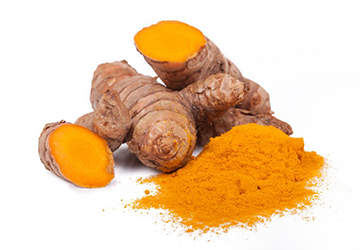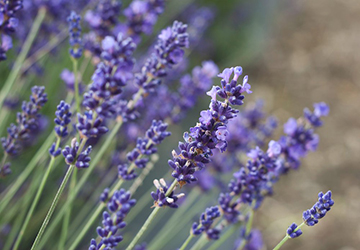The very foundation of medicine is rooted in the healing properties of nature. For millennia, our ancestors have turned to plants, seeds, roots, and bark to cure ailments and maintain good health. In today's age of synthetic drugs and advanced medical technologies, the essence of herbal medicine remains potent, offering a treasure trove of benefits waiting to be discovered. Dive into the mysterious world of natural remedies to unearth the secrets of age-old therapeutic practices.
Before the advent of modern medicine, indigenous cultures worldwide relied on the Earth's bounty for healing. They possessed extensive knowledge about the therapeutic properties of local plants and herbs, formulating remedies passed down through generations. This profound understanding of nature's pharmacy was the bedrock of traditional healing.

Each corner of the world boasts its rich history and traditions related to herbal medicine.
● Africa: The continent has a rich herbal legacy, with plants like the African geranium used for respiratory infections and the devil's claw for pain and inflammation.
● The Americas: Native Americans have utilized plants like echinacea for immune support and the golden seal as an antibiotic alternative.
● Asia: From the Ayurvedic practices of India to the ancient herbal traditions of China, plants like ginseng, ashwagandha, and gotu kola have been revered for their therapeutic properties.
The planet is brimming with flora that possess incredible healing properties. These plant-based cures are not only practical but often have fewer side effects than their synthetic counterparts.
● Willow Bark: Often dubbed the "natural aspirin," bark has been used for centuries to treat pain and inflammation.
● Turmeric: This golden spice isn't just for cooking. It boasts anti-inflammatory and antioxidant properties, making it a staple in Ayurvedic medicine.
● Lavender: Beyond its calming scent, lavender can soothe burns, promote wound healing, and alleviate anxiety.
Traditional healing practices have endured the test of time, but now, modern science is crucial in verifying their efficacy. Research is ongoing, with scientists analyzing the chemical compositions of plants to understand and enhance their medicinal properties.
One notable example is the discovery of the antimalarial drug artemisinin, derived from the sweet wormwood plant. Traditional Chinese medicine had long used this plant to treat fever, and scientific validation led to its widespread adoption in modern medicine.
The contemporary world is witnessing a resurgence in the appeal of herbal medicine. With increasing number of people seeking holistic and natural approaches to health, herbal remedies are returning.
● Herbal Teas: More than just a beverage, herbal teas like chamomile, ginger, and peppermint serve therapeutic purposes, from digestion aid to relaxation.
● Essential Oils: Oils derived from plants are used in aromatherapy to treat many physical and emotional conditions.
● Topical Applications: Herbal creams, balms, and salves are now widely available, offering relief from skin ailments, muscle pain, and more.
Modern science is continually discovering new facets of traditional healing.
● Herbal Supplements: From capsules to tinctures, modern ways of consuming herbs have made it easier for individuals to incorporate them into their wellness routines.
● Technology-aided Identification: Advanced technologies like DNA barcoding authenticate herbal products, ensuring consumers get genuine products.
● Sustainable Farming: Modern agricultural practices aim to cultivate herbs sustainably, ensuring their longevity and preserving biodiversity.

While many are familiar with mainstream herbal medicine like chamomile or lavender, nature’s pharmacy extends far beyond these household names. Plants like the adaptogenic Rhodiola rosea help combat stress, while the Amazonian cat's claw offers immune support. Each region of our planet holds untapped botanical secrets waiting to be integrated into our wellness journeys. Diving deeper into the annals of natural remedies reveals a wealth of health-enhancing options often overlooked in favor of more well-known counterparts.
While natural remedies offer abundant health benefits, it's essential to approach them with a discerning eye.
● Interactions with Modern Medicines: Some herbs can interfere with prescription drugs. For instance, St. John’s Wort can reduce the effectiveness of birth control pills.
● Over-Harvesting Concerns: Some popular herbs face the threat of over-harvesting, leading to potential extinction.
● Standardization Issues: Unlike pharmaceutical drugs, herbal remedies might not be standardized, leading to variance in potency.
Growing your herbs can be rewarding to integrate plant-based cures into daily life.
● Basil: Beyond culinary uses, it’s believed to have anti-inflammatory properties.
● Mint: Eases digestive woes and can be brewed into a refreshing tea.
● Rosemary: Beyond its aromatic appeal, rosemary may enhance memory and concentration.
Herbal medicine isn't merely about physical healing; it embraces a holistic paradigm.
● Mental Well-being: Herbs like lemon balm and passionflower can help combat anxiety and promote relaxation.
● Spiritual Connection: Many indigenous cultures use herbs in spiritual practices, recognizing their power to connect the human spirit with nature.
● Body Detoxification: Herbs like milk thistle and dandelion root aid in detoxifying the body, promoting overall vitality.
In the rush of the digital age, there's a danger that the intricate knowledge of natural remedies might be lost. Documenting and preserving these age-old practices is imperative, ensuring that future generations can benefit from the Earth's natural bounty.
As we unearth more about the incredible world of herbal medicine and natural remedies, it's evident that a harmonious blend of ancient wisdom and modern science can lead us toward optimal health. Traditional healing and plant-based cures aren't mere alternatives but integral components of a comprehensive health approach. With careful consideration and respect for these age-old practices, we can harness the holistic power of the plant world.
Note: Remember to seek expert guidance before diving into herbal treatments. While nature offers profound healing, ensuring what's proper and safe for individual health circumstances is vital.